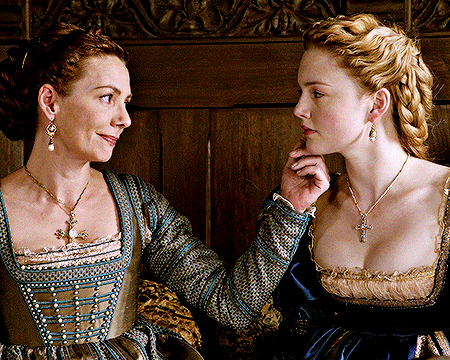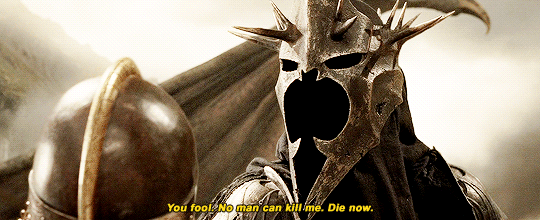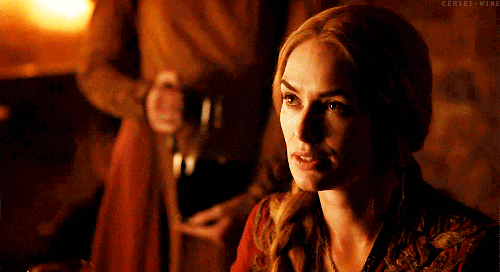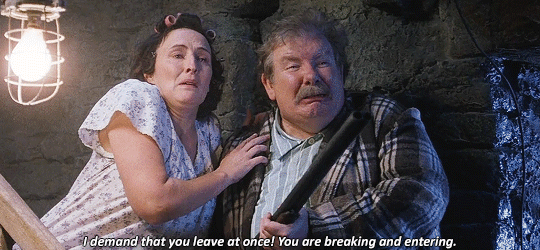#the way she frequently juxtaposes her family's current state with their past life
Explore tagged Tumblr posts
Text
she’s such a queen #it’s actually tragic how she was correct that the papacy would take her children from her #and yet she continues on in spite of everything as the matriarch
tags via (@teagrammy)



"We were outsiders when we came here. Spaniards, Catalans. And we endured the insults. The taunts of Murano. The insidious invective of the Roman nobility. And you, dear mother, endured it most of all. But if we managed to triumph, and triumph we did, we did because of the warmth that we discovered around this table. The warmth of the Spanish sun, of our Catalan blood. That you recreated in your hearth, in your home. At this table. The huge, unstoppable, beating heart of La Madre." — JUAN BORGIA, THE BORGIAS (2.03)
#prevvv !!!!!!#the way she frequently juxtaposes her family's current state with their past life#in a sense that she expresses a desire to revisit those happier times pre-papacy era#like she's constantly influenced by her romanticized views of the past#“what happened to you juan? you were such a lovely child.”#and it saddens her as she witnesses how her children have been forever changed by the papacy#and values enduring family connections (or anything that stands the test of time)#i mean the father of her children replaced her in favor of a younger woman as his current mistress#and made difficult decisions when it comes to their children and his political ambitions#and despite tolerating it for the sake of harmony she remains very vocal about her sentiments on the matter (or in any situation tbh)#vanozza cattaneo you will always be loved by me#reblogs
286 notes
·
View notes
Text
Prophecies and free will - the (seductiveness of) disenchanting the Galaxy FFA
Or a really long introduction to the smut hut vision meta
Prophecies are a slippery matter in fiction - or at least they became so as the process of disenchanting or rationalisation of the world progressed. There's always some sort of tension between the notion of destiny and free will, not always a very comfortable ome, and the simplest disenchantment is to reject the former idea completely. Nevertheless, prophecies are a more than useful plot device in the way they affect the interpretation of the text and build suspense. Besides, it would be a bit dull if all authors always chose the same, most rational answer.
Macbeth is a fascinating text for many reasons, but one of them is the way Shakespeare used practically every way in which a prophecy may get resolved - that is, except for the option that they don't come to fruition at all - and even that interpretably. So:
prophecy as a trigger setting in motion deeds leading to its fulfillment - that's of course the case of Macbeth and Lady Macbeth killing Duncan. It's impossible to say what would have happened if Macbeth never encountered the witches or never acted basing on their prophecy. Interestingly, Macbeth is usually juxtaposed with Oedipus, but I'd argue it's an oversimplified reading of the text, as it's hardly the only prophecy in Macbeth
prophecies fulfilled on their own - that's all of those applying to Banquo and Fleance. Banquo doesn't do anything to bring them to fruition, yet they all come true and, arguably, independently of Macbeth's actions - though only arguably.
an interesting point to be made is that prophecies applying to Banquo and his offspring do not get fulfilled in the text taken alone - it's more of tacit knowledge those interested in Shakespeare or british history and, arguably, target audience of 17th century London have (had) that Macbeth is in fact grounded in history and James I was Banquo's offspring. Otherwise, audience is left to assume the fact that Fleance escaped means that at some point he became the king of Scotland - or that the whole prophecy thing was, in fact, bs
a self-fulfilling prophecy - that's the case with Macduff. There was of course a general uprising against Macbeth's rule but it was only through his attempt at avoiding the prophecised threat and killing Macduff's family that he got himself a mortal enemy - and one that, incidentally, wasn't of a woman born
prophecies not going to go the way you think - that's Birnam forest and Macduff's birth. They both made Macbeth feel invincible yet they both somehow came to be. A point to be made is that for such a prophesy it be, it has to be expressed ambiguously (a frequent case in ancient times when oracles would basically get high to have visions) and thus it's actually its believer's arrogance that leads to their fall. Enter Eowyn the badass


That last take on prophecies - that they come to fruition in some, far from obvious, way - has become almost a cultural standard by now. It allows for suspense to be built, introduces some irony, especially if combined with self-fulfillment, and all that without really challenging the tension between destiny and free will. Such is currently the case with Cersei Lannister and the valonqar prophecy. Few think she's right to believe it's Tyrion who'll kill her and if so, then only as a result of the way she treated him out of fear caused by what Maggie the Frog said - hence the most satisfying option apparent is if she's killed by Jaime (not going to go the way she thought) because of the way she treated Tyrion (self-fulfillment).
The problem is, George R.R. Martin could yet turn out to be a trope refuter. There are those who believe the show and the books will go in completely seperate directions, the former reviving the epic fiction genre, the latter deconstructing it completely. Thus all of the prophecies are bs, prince that was promised and valonqar alike. However, once a prophesy is introduced it will always affect the way readers interpret the text and I think Martin considered that. Cersei surviving past the last page of the last book won't mean she definitely won't get killed by someone's younger sibling - because the readers, trained by Macbeth, know better than to not consider every younger sibling of ASOIAF. The truth is, for the most creative readers to not come up with some way in which the valonqar prophecy will be fulfilled, Cersei would have to spontaneously combust and even then some would argue she got choked by the smoke, and smoke is fire's younger sibling or something. In a way, valonqar can be Birnam forest gone meta.

I introduced ASOIAF in its most disenchanted reading (which, in itself, doesn't have to be the correct one for what we do know by now) because a good deal of audience expects it to be the new cultural standard and apply the same attitude towards - among others - Star Wars. Disenchantment. No more lineages, no more prophecies, the Force gets stripped of all the mystical bs, it's just magic in a fairy tale. Now, I'm all in for premarital sex, but tbh, I would feel as a tad uncomfortable if after 19 years it turned out Shmi was lying about Anakin's birth.
And I would also say the potential disenchantment is what makes ASOIAF adult fiction at least in the same degree as sex and violence described, whereas Star Wars remains a saga for 12 year olds. Disenchanting the world feels good, feels smart, feels like telling your younger sibling Santa Claus doesn't exist. It basically has a strong Vernon Dursley vibe to it.

So, leaving Scotland and Westeros and returning to the Galaxy Far Far Away
So far there have been three, arguably four, arguably two, prophecies in Star Wars’ main story. The two undisputable ones are that of balance and the smut hut visions. The third one is that of Padmé’s death in labour and the fourth one, very similar, whatever Luke saw on the Dolorous Night. I think it’s a bit too simple to treat them all as indiscriminately going to go not the way we think combined with self-fulfillment. So, let’s analyze.
I’d argue that the prophecy of balance is a case of one itself being an agent influencing actions in the desired direction. Now, the Force may not be as morally unambiguous as jedi would like, but it’s not as amoral/downright malevolent as the three witches (sometimes interpreted as the Moirai, hence the amorality). But it’s also the main reason why Anakin became a jedi and later a sith in the first place, and the jedi in their old form, as most here agree, had to go for the balance to come. Would Qui-Gon train a “too old”, strongly attached to his mother force sensitive and help him get a better life than that of a Tatooine slave? Probably yes, because Qui-Gon was a good person. But would jedi let him join the order? Probably not, for their own good - but their good was a secondary matter here.
Anakin's vision of Padmé's death is a tricky one. In many ways it's a classic case of self-fulfilling prophecy, but there's a bit more to it. First of all, it's the only one that we actually see the way it plays out in Anakin's head, as opposed to his getting impression of Shmi dying. It also differs an extent from the way Padmé actually died, which, I think, is the best argument for the theory the vision was implanted in Anakin's mind courtesy of Palps (though it's far from being a decisive). Or just good old subconscious beeing mean.
Similar discussions apply to what exactly prompted Luke to consider killing Ben, up to the point of some people believing this was Snoke's direct influence, too. Or it could have been, again, Ben's subconsciius that he had no intention to follow. Funnily enough, it's also the only case when a good deal of audience isn't inclined to question the vision, but whatever.
And finally, the smut hut. Now, following a few months of uncertainty, the SW databank stated explicitly that Rey and Ben both had visions of the future. I don't think the visions were in any way manipulated by Snoke, or the raisin would have bragged about it. I also refute the idea that the visions are going to go completely the other way than they think, because Rey talking about solid and clear vision precludes an amibuguity of Birnam forest type - granted the latter was a case of being overly literal about what could be seen, but unless Rey's moral sense is highly questionable, I'd say if she says she saw Ben doing good, that means she saw him doing good. And leaks from Jedi the Last only enforce that belief.
There is however the question of what exactly have they seen. Now, I know most reylos think they have seen their grey future together - and I'm far from decisively refuting that - but it just doesn't add up, imo. It's too simple, too easily reconcilable for their reactions. If I were to interpret their expressions when they tell each other what they saw - to refresh, Rey tells Ben he's not going to bow to Snoke, he'll turn and she'll help him whereas he says when the time comes I don't think this part gets the attention it deserves, from any part of the fandom she'll be the one to turn and that she'll stand with him (I find it interesting, btw, that Ben is arguably the only character so far to not act in order to directly achieve or prevent a force vision, though only if we assume he hasn't seen his future with Rey) - Ben looks sceptical (yup, I think homeboy's done with all the visions he had and others had about him) but Rey is downright disquieted, even before he brings in her parents. How hard to reconcile is what they said they saw if they have indeed seen the same thing? But, as I already stated, that's just my take and having a choice between an answer that's interpretably simple and intuitive but bringing even more questions, I'll choose the latter any day.
Because the really interesting question imo is why have they seen whatever they saw because, regardless of whether their visions were gray or black and white, one clear result is that they brought them closer together, if only for a while. Another case of a prophecy being an agent in its own fulfillment? Force badly wants 'em great-grandbabies? Were the visions coercions? Or warnings, if black-and-white? Inevitable or but possible? Or will the galaxy far far away get disenchanted and the entire scene was but a plot device?

48 notes
·
View notes